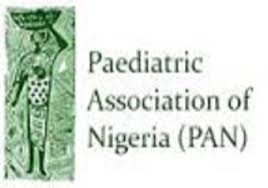… NGOs, experts laud assent
Doctors and health workers in Nigeria may protest the National Health Bill signed into law by President Goodluck Jonathan, yesterday.
There were apprehensions among various unions under which the health professionals operate, shortly after the news of the new law broke out.
Leaderships of two of the health workers unions in telephone interviews with National Mirror were hesitant to either praise or condemn the President’s action on the Bill.
President, National Association of Nigerian Nurses and Midwives, Abdulrafiu Adeniji, said his group would study the law if it embraced contributions from the nurses.
His words: “The Health Bill was signed overnight. As a person, and as an organisation, what has happened in Nigeria so far, we don’t trust anybody, until it comes out and we see that the level of engagement that we had before it went in is still there. When we see the content, then, we’ll know that may be our agreement, our discussion, our points of disagreements or whatsoever, if they sustain them, then we will see what to do. If not, then, it still leaves much to be desired.”
Similarly, the Medical and Health Workers Union of Nigeria, MHWUN, said it had to go through the law before it would react.
Secretary-General of the association, Comrade Marcus Omokhuale, told our reporter in a telephone interview that the association must be sure if its last contributions into the bill were included in the new law.
He said; “We don’t have the details; we don’t know whether it was the last version which the National Assembly passed that he signed. We need to able to see the full details; we will know whether the interventions we made are still there before we start saying something.”
Benjamin Anyene, chairman, Health Reform Foundation of Nigeria, HERFON, Board of Trustees, said the implementation of the Bill will save the lives of three million women and children over a five-year period.

Anyene noted that the National Health Bill increases funding, addresses inequities and responds better to the health needs of the population.
“With the passage of the Health Bill, health services will improve. More Nigerians especially the vulnerable group will be able to access quality services and health status will also improve.” Anyene said.
Reacting to this, The Pharmaceutical Society of Nigeria, PSN, has commended the president for finally giving his assent to the National Health Bill.
In a statement signed by the PSN President, Pharm. Olumide Akintayo and made available to National Mirror, the PSN expressed delight over the new version of the National Health Bill.
It said, “ this signifies the first time the borders of restriction in healthcare was opened as major health professional associations and trade unions are represented in key structures of the new Health Act.
“It is our hope that this seeming progressive document was not doctored after the harmonised version was passed at National Assembly.
We also wish that government expedites action on the implementation of the Act”, the release said.
On his part, the immediate past president of Nigeria Medical Association, NMA, and the Vice President of the Commonwealth Medical Association (CMA), Dr. Osahon Enabulele, expressed delight over the assent by the President.
It would be recalled that dissension among health workers and medical practitioners over perceived unfavourable contents to their members in the initial bill, scheduled to be signed into law by the President in 2010 compelled the President to send the bill back to the National Assembly.
There had been fears the new bill could follow similar fate since there was no reaction from the Presidency over the bill within the one month stipulated by the constitution for him to sign such bills into law.
Such fears were heightened by increased conflicts among the ranks of health workers and medical professionals in the country; even though it was assumed that most of them had agreed that the bill be signed by the President.
by Franka Osakwe and Marcus Fatunmomole
ABUJA: Training Schedule for Basic Life Support BLS, Pediatric Advanced Life Support (PALS), Advanced Cardiovascular Life Support ACLS, First Aid, CPR, AED
PORTHARCOURT: Training Schedule for Basic Life Support BLS, Pediatric Advanced Life Support (PALS), Advanced Cardiovascular Life Support ACLS, First Aid, CPR, AED
LAGOS: Training Schedule for Basic Life Support BLS, Pediatric Advanced Life Support (PALS), Advanced Cardiovascular Life Support ACLS, First Aid, CPR, AED
.jpg)



